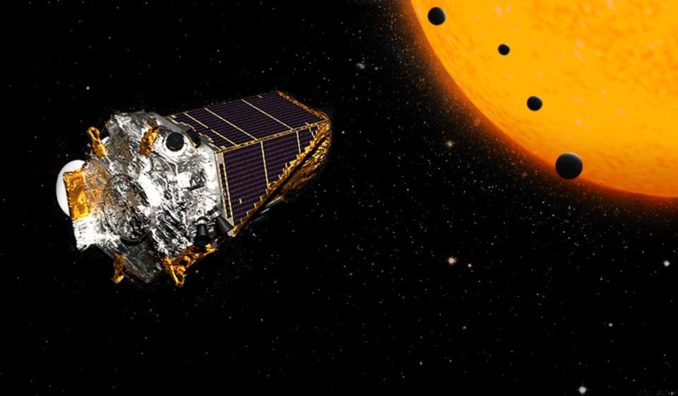
NASA’s newest exoplanet-hunting spacecraft has started taking scientific data as of last week, according to a NASA release.

Nearly a decade after launching NASA’s Kepler telescope has netted 2,650 new confirmed worlds beyond our solar system. It now has paused its observations after on-board sensors detected it is running low on fuel.

Scientists have analyzed data from K2, the follow-up mission to NASA's Kepler Space Telescope, and have discovered a trove of possible exoplanets amid some 50,000 stars.

NASA’s Juno spacecraft took this color-enhanced image on May 23, 2018 24), as the spacecraft performed its 13th close flyby of Jupiter. At the time, Juno was 15,500 kilometers from the planet’s cloud tops.

Starting in early June, Dawn will begin collecting gamma ray and neutron spectra to better understand the composition of the topmost rock and soil layers while taking high-resolution photographs of dwarf planet Ceres.

Transiting Exoplanet Survey Satellite – TESS – has snapped a stunning test photo showing an estimated 200,000 stars cantered on the southern constellation Centaurus.

NASA’s robotic lander InSight officially started its journey to Mars following a successful predawn launch aboard an Atlas V rocket Saturday morning. The launch took place at 4:05am local time from California.

The ExoMars Trace Gas Orbiter has released the first images from its new orbit, taken on April 15 from 400 kilometers above the Martian surface.

Set to lift off early next week, the Tess spacecraft will prowl for planets around the closest, brightest stars. These newfound worlds will become prime targets for future telescopes looking to tease out any signs of life.

This summer, NASA will launch the Parker Solar Probe, an impressively heat-resistant spacecraft destined to glide closer to the surface of the Sun than any spacecraft before it.

The European Space Agency picked the Atmospheric Remote-sensing Infrared Exoplanet Large-survey (ARIEL) mission to explore the nature of exoplanets.

At the north pole of Jupiter eight storms are arranged around a single polar cyclone. In the south, one storm is encircled by five others.

Based on data from NASA's K2 mission an international team of scientists have just confirmed nearly 100 new exoplanets. This brings the total number of new exoplanets found with the K2 mission up to almost 300.

NASA’s New Horizons spacecraft, now 3.79 billion miles from Earth, snapped these images of Kuiper Belt Objects. They’re the furthest images ever taken away from Earth.

To solve the many human-related limitations of space travel, SpaceWorks Enterprises is looking into selectively hibernating the crew during extended trips.